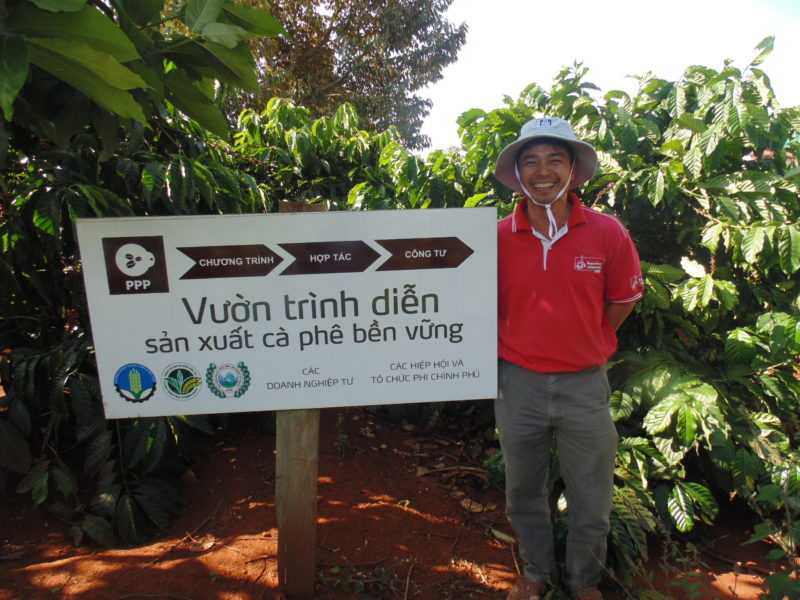Water use, greenhouse gas emissions and the economic viability of coffee farming are some of the most important issues in the Vietnamese coffee sector today.
At the Vietnam Coffee Outlook, industry experts discussed the importance of Public Private Partnership (PPP) for Sustainable Development on Coffee in Vietnam, and how PPP can help to alleviate some of these issues.
Current PPP coffee projects
PPP pilot projects began in 2011 in Vietnam, and have quickly grown in popularity. Today there are 60 PPP farmer groups in Vietnam, with a total of 3,220 farmers covering 5,262 hectares of land in the Central Highland regions.
Soil and leaf analysis showed that there were problems with soil management due to long periods of intensive coffee farming.
The soil is generally highly acidic, deficiency of secondary and micro nutrients which limits the optimum uptake the coffee trees can absorb and impact to coffee quality.
Therefore, part of the plan for PPP farms involved applying balanced nutrition program with dolomite or Nitrate (NO3-) based fertilizers to increase the efficiency of nutrient uptake.
The results
The results of the PPP farms against the control group are striking. After 5 years of monitoring, the PPP farm demo group:
- Use 30% less water than the control group
- Cut their Greenhouse Gas Emissions from fertilizer usage by 55%
- Have 12% higher farm income
- Enjoy 14% higher yields
- Use 17% less fertilizer but with higher efficiency
Scaling-up the model
The current PPP farm projects are coordinated by Nestlé and Yara. Public and private partners in Vietnam are now looking at how to efficiency scale-up the PPP model.
There is also the possibility to replicate and adapt the model for use in other sectors or countries, which has the potential to generate significant positive environmental and economic impact.
This article is based on data provided by Yara, presented at the Vietnam Coffee Outlook 2016.


















